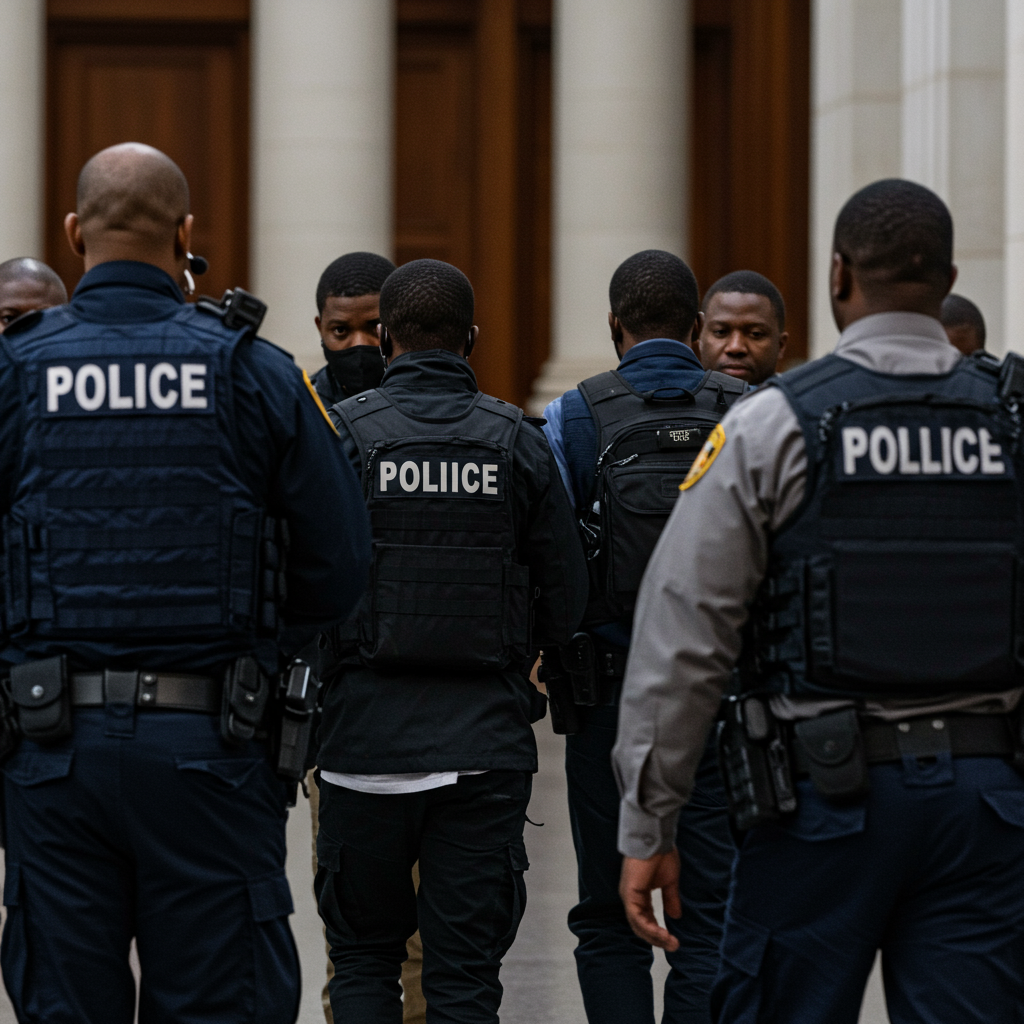A critical legal battle culminated in early July 2025, as a United States judge cleared the final obstacle for the deportation of eight men to south sudan. This decision paved the way for the removals, which quickly followed, concluding a protracted legal saga involving the Trump administration, federal courts, and the Supreme Court. The case ignited intense debate over immigration enforcement, human rights, and the safety of deporting individuals to countries deemed unstable.
For weeks, the fate of these eight men hung in the balance. They had been held under guard at a US military base in Djibouti, located on the strategic Horn of Africa, since late May 2025. Their detention followed an earlier attempt by immigration officials to deport them to South Sudan, which was temporarily blocked by court orders. The men were initially housed in a converted shipping container at the base while their legal challenges unfolded across continents.
The Legal Tightrope Walk
The path to deportation was anything but straightforward. It involved a series of court rulings and appeals, highlighting the complex interplay between executive branch immigration policies and judicial oversight. A key figure in this legal drama was Judge Brian Murphy in Boston, who had previously issued orders requiring the government to provide immigrants with opportunities to challenge their removal, especially when facing deportation to “third countries” – nations other than their country of origin.
The Trump administration’s increasing reliance on agreements with other nations to accept deportees, even those who were not citizens of those countries, became a focal point of legal challenges. Critics argued that sending individuals to unstable or dangerous locations violated fundamental rights and put lives at risk.
Supreme Court Intervenes
The legal challenge involving deportations to third countries, including this group destined for South Sudan, eventually reached the US Supreme Court. In June 2025, the high court issued a ruling that significantly curtailed lower courts’ ability to block such removals. The Court stayed a nationwide injunction previously issued by Judge Murphy, effectively allowing the administration to proceed with deportations to third countries without the rigorous due process steps Murphy had mandated.
Despite this Supreme Court decision, lawyers for the eight men pursued last-minute appeals. They argued that sending the men to South Sudan amounted to cruel and unusual punishment, a violation of the US Constitution. This final legal push led to a flurry of activity, even on Independence Day weekend, resulting in temporary halts and transfers between courts.
Judge Murphy’s Final Ruling
The critical moment arrived late on Friday, July 4, 2025. After the case was sent back to him from a judge in Washington, D. Brian Murphy issued a ruling denying the immigrants’ request to block their deportation. He stated that the Supreme Court’s previous decisions had constrained his judicial authority, leaving him powerless to halt the removal proceedings at that stage. Judge Murphy indicated that the arguments presented were substantially similar to those the Supreme Court had already addressed, tying his hands. This decision effectively removed the final legal barrier.
The deportations proceeded swiftly. The Department of Homeland Security confirmed that the eight men were removed from US custody on Friday, July 4th. A plane carrying the deportees reportedly arrived in Juba, South Sudan, on Saturday, July 5, 2025, in the early morning hours local time.
Who Were the Deported Men?
The group of eight individuals facing deportation were not all from South Sudan. While one man was a South Sudanese national, the others hailed from various countries including Cuba, Laos, Mexico, Myanmar, and Vietnam. All eight men had been convicted of serious crimes within the United States. Administration officials cited convictions for offenses such as first-degree murder, robbery, drug trafficking, and sexual assault as the basis for their removal orders. Officials emphasized that these men had either completed or were nearing the end of their prison sentences when the deportation process began.
Controversy and Safety Concerns
The deportation plan drew strong condemnation from human rights organizations and immigration advocates. A central concern revolved around the safety and stability of South Sudan itself. The US State Department currently advises American citizens not to travel to South Sudan, citing significant risks due to “crime, kidnapping, and armed conflict.” The country has a recent history of brutal civil war, and the United Nations has warned that ongoing political crises could reignite widespread conflict.
Critics argued that deporting individuals, even those with criminal records, to such a volatile environment was deeply irresponsible and potentially life-threatening. Progressive lawmakers and legal experts voiced strong objections. Representative Pramila Jayapal called the deportations “wrong, period,” stating the US should not send people to “a literal war zone.” Blaine Bookey, a legal director at the Center for Gender & Refugee Studies, criticized the administration’s increasing use of “third country transfers,” arguing they undermine due process, international legal obligations, and basic human decency.
Administration Justifies Action
Conversely, Trump administration officials defended the deportations as a necessary step to uphold the rule of law and protect national security. Tricia McLaughlin, an Assistant Secretary at DHS, hailed the completion of the removals as “a win for the rule of law, safety and security of the American people.” Attorney General Pam Bondi also supported the action, criticizing the lower court judge who had initially blocked the deportations. The administration maintained that the men had final orders of removal due to their criminal convictions and that agreements with third countries, coupled with purported diplomatic assurances from South Sudan, justified the transfer.
The case underscored the administration’s aggressive stance on immigration enforcement, particularly targeting individuals with criminal histories, and its willingness to pursue deportations to challenging destinations despite legal and humanitarian objections. The location of the eight deportees within South Sudan after their arrival was not immediately known.
Frequently Asked Questions
What did the judge’s ruling allow regarding deportations in July 2025?
In July 2025, Judge Brian Murphy in Boston ruled to deny a last-minute appeal by eight men facing deportation, effectively clearing the final legal hurdle. His decision, issued on Friday, July 4th, stated that rulings from the US Supreme Court had limited his authority to block the removals. This cleared the way for the eight men to be deported from the US, which occurred that same day, with a plane arriving in South Sudan on July 5th.
Who were the eight men deported to South Sudan and why?
The group of eight men deported were noncitizens from various countries, including Cuba, Laos, Mexico, Myanmar, South Sudan, and Vietnam. All of them had been convicted of serious crimes within the United States, such as first-degree murder, robbery, drug trafficking, and sexual assault. The Trump administration cited these criminal convictions as the reason for their final orders of removal, justifying their deportation.
Why are deportations to South Sudan controversial or considered dangerous?
Deportations to South Sudan are controversial primarily due to significant safety concerns. The US State Department advises against travel to the country because of risks like crime, kidnapping, and armed conflict. South Sudan has recently experienced civil war and remains politically unstable, with warnings from the United Nations about potential renewed conflict. Human rights groups and critics argue that sending individuals to such a volatile environment puts them at risk of torture, persecution, or death, raising humanitarian and legal issues, especially regarding due process.
The deportations marked a significant development in the ongoing legal battles surrounding the Trump administration’s immigration policies. While the administration celebrated the outcome as a victory for enforcing immigration laws against convicted criminals, critics continued to raise alarm bells about the ethical implications and potential dangers faced by individuals deported to volatile regions like South Sudan, highlighting the deep divisions in the debate over immigration enforcement and humanitarian concerns.




